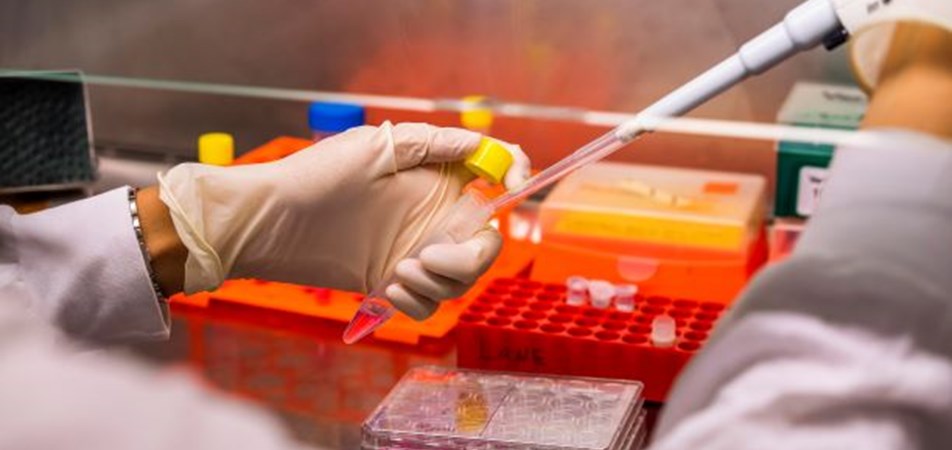To recover your password please fill in your email address
Please fill in below form to create an account with us

04/08/21
A new clinical trial research program partnering Australian researchers and medical institutes will offer people living with blood cancer access to genomic screening of their individual disease, potentially leading to accessing precision medicines.
High-grade lymphomas and acute leukaemias are aggressive blood cancers, with few treatment options available to patients living with relapsed or refractory disease. By linking genomic profiles with a series of research treatments, this new program could offer fresh hope for those living with these advanced cancer forms.
The Blood Cancer Genomics Trial (MoST-LLy) will leverage the experience, infrastructure and novel clinical trial design powering the Molecular Screening and Therapeutics (MoST) Program. This program is pioneering the way that solid tumours could be treated with precision medicine. MoST-LLy represents the first time this platform will be used to screen and treat people living with blood cancer in Australia.
Matching patients' tumour profile with available and promising treatments
The research program aims to match patients’ tumour profile with available and promising treatments. This could be a standard treatment, a treatment offered by MOST-LLy, or a treatment offered by another clinical trial. The first treatment to be tested in MOST-LLy is for aggressive lymphoma, and other treatments for other blood cancers will follow later this year. The program will also research biomarkers of response or resistance to treatments to further develop precision-based therapy options.
The research program will provide a new model of rapid clinical translation and access to novel treatments for high-risk blood cancers in Australia, with findings that may change the management of advanced blood cancers and improve patient outcomes.
A collaboration between Australian researchers and medical institutes
The program is a collaboration between the Royal Brisbane and Women’s Hospital, Royal Adelaide Hospital, QIMR Berghofer Medical Research Institute, SA Pathology, Garvan Institute of Medical Research, Omico (the Australian Genomic Cancer Medicine Centre) and the NHMRC Clinical Trials Centre at the University of Sydney. The research has ethics approval from St Vincent’s Hospital Human Research Ethics Committee and the University of Sydney is the regulatory sponsor of clinical trials undertaken through MoST-LLy.
The pilot $1.8 million program allows the screening of 240 patients initially and is proudly co-funded by the Leukaemia Foundation and Tour de Cure. Screening is now open to patients at Royal Brisbane and Women’s Hospital, with South Australia expected to open to recruitment later this year and SA Pathology providing molecular screening for the program across both states. The program is also supported by the Australian Government, the NSW Office of Health and Medical Research, and pharmaceutical partners1.
The program has also recently been awarded an additional $2.7 million through the Australian Government’s Medical Research Future Fund (MRFF), which will be used to expand the pilot project to 240 more patients and sites across Australia in 2022 and beyond.
Providing a new model of rapid clinical translation and access to novel treatments for high-risk blood cancers in Australia
With more than 50 Australians diagnosed with blood cancer every day and blood cancers combined now ranking as the second largest cause of cancer-related death in the country, Leukaemia Foundation CEO Chris Tanti said the importance of improving access to genomic screening and clinical trials could not be overstated.
“If we are to have any hope of reducing blood cancer mortality in this country, we must shift our focus away from treating blood cancer subtypes with a ‘one size fits all’ approach and towards targeted therapies. Genomic testing illuminates the best treatment path for each individual patient, and the potential for delivering precision medicine tailored to them may result in improved survival, less side effects than some traditional treatment options, less time spent in treatment and greater quality of life,” he said.
“This research program will provide a new model of rapid clinical translation and access to novel treatments for high-risk blood cancers in Australia. Importantly, findings through this program may improve patient outcomes and ultimately change the management of advanced blood cancers.”
MoST-LLy is led by Professor Steven Lane at the Royal Brisbane and Women’s Hospital, Professor Hamish Scott from SA Pathology, Associate Professor David Ross at the Royal Adelaide Hospital, Professor David Thomas as the Molecular Screening and Therapeutics Program (MoST) lead, and Professor John Simes as the co-chair of MoST from the NHRMC Clinical Trials Centre at the University of Sydney.
Prof. Lane, head of the Cancer Program at QIMR Berghofer and Consultant Haematologist at the RBWH, said the program provides a systematic way of understanding genetic changes occurring, developing a clinical report assessing these changes, and using that information to determine a better treatment pathway for the patient.
“This program firstly involves providing access to genetic sequencing, then bringing together those with knowledge and understanding of these genes to determine which of these genetic changes occurring are significant in terms of driving cancer development, and which changes are simply incidental,” he said.
“We can use the sequencing information to inform the patient of a treatment type which may work best for their specific situation – and that tailored treatment may be accessible through an available clinical trial in Australia.”
Interested patients should discuss this trial with their haematologist. Further information on the trial is available through the Leukaemia Foundation website.
The National Strategic Action Plan for Blood Cancer, developed by Australia’s first Blood Cancer Taskforce and released by Federal Health Minister The Hon. Greg Hunt MP last year, contains a number of actions and recommendations regarding improving use of - and patient access to - genomic testing, clinical trials and precision medicine in Australia.
“Together, genomic screening, clinical trials and precision medicine have the power to revolutionise the way we treat blood cancer in Australia and bolster the national blood cancer community’s concerted work to achieve zero lives lost to this complex set of diseases by 2035,” Mr Tanti said.